The alliance comprising Giorgia Meloni’s post-fascist Brothers of Italy, Matteo Salvini’s anti-immigration League and Silvio Berlusconi’s Forza Italia is polling at around 48 percent ahead of the vote, compared to around 30 percent who back Letta and his left-wing allies.
Italy “runs a big risk if it puts itself in the hands of friends of Trump and Putin”, said Letta in a recent interview with AFP, referring to Meloni’s admiration of former US president Donald Trump and Salvini and Berlusconi’s historic ties with Russian leader Vladimir Putin.
PROFILE: Who is Giorgia Meloni, Italy’s likely next prime minister?
This was also a risk for the European Union, as “there has never been a major European country governed by political forces so clearly against the idea of a community of Europe”, the 56-year-old said at his party’s headquarters in central Rome.
By contrast, for the Democratic Party, “our idea of Europe is an idea of cooperation, of solidarity, of decisions taken by the majority, without someone like (Hungary’s Prime Minister Viktor) Orban every time using his veto and blocking decisions”.
The right-wing coalition has pledged to press for reform of the EU and more immediately, to revise Italy’s plans for spending almost 200 billion euros in post-pandemic recovery funds.
READ ALSO: What election promises have Italy’s political parties made so far?
Letta is disparaging: “As if that money was Italian money and we could afford to argue and debate with Brussels, when instead it is European money we have negotiated with Brussels.”
‘Populism calmed, not eliminated’
Letta was the Democratic Party’s prime minister for 10 months over 2013 and 2014, before being forced out in an internal party coup.
He left Italy and became the dean of the international affairs school at the prestigious Sciences Po University in Paris.
He returned in 2021 to take the helm of his old party, which was then part of Prime Minister Mario Draghi’s grand unity coalition – until the withdrawal of the right-wing alliance and the populist Five Star Movement caused its collapse in late July.
READ ALSO: Why do Italy’s governments collapse so often?
Italy’s elections come at a sensitive moment. Russia’s war in Ukraine has brought about an energy crisis and soaring inflation is squeezing businesses and households still recovering from the devastation of coronavirus.
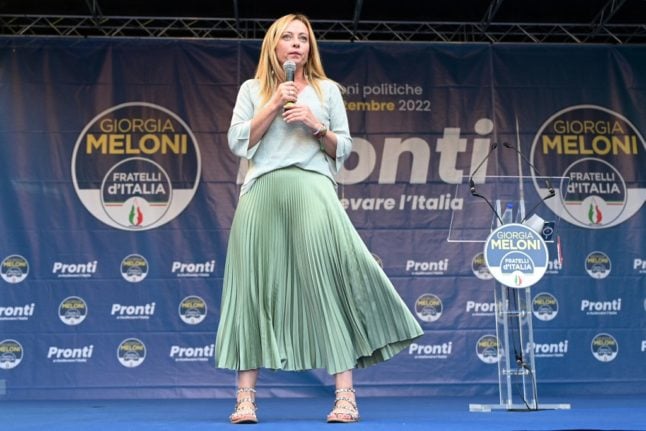
Letta has warned repeatedly that Moscow is seeking to interfere in Italy’s politics, notably by cutting supplies of energy on a country heavily reliant on Russian gas.
“It’s obvious that Moscow is pushing for a right-wing victory in Italy,” Letta said.
“I think the most obvious demonstration of this is Putin’s gas strategy, which is strangling Europe and putting Italy in great difficulty at the moment it is in an election campaign.”
Europe had to provide a collective response to this and other crises, he said: from coronavirus to managing the tens of thousands of migrants who land on Italy’s shores every year from North Africa.
“Italy played a very important role in the European response to the pandemic and it is no coincidence that the Draghi government arrived immediately afterwards, which calmed and appeased populism,” he said.
“But populism in Italy has only been calmed, it has not been eliminated.”
‘Rebuilding the left’
The Democratic Party is neck-and-neck with Brothers of Italy with around 24 percent of the vote. But Letta’s failure to form a grand coalition on the left, to counteract the Meloni-Salvini-Berlusconi alliance, reduces his chance of gaining power.
However, he insists the outcome is not yet decided, citing polls suggesting 40 percent of the electorate either will not vote or has not yet decided for whom.
After a dismal showing four years ago for the Democratic Party – what he describes as a “trauma” – “today we are rebuilding the Italian left”.
It is campaigning on a platform of defending workers, including with a minimum wage, environmental protection, helping young people find jobs, and defending and promoting civil rights.
By contrast, he accuses his rivals of offering “propaganda”.
Asked about his relative lack of popularity compared to straight-talking Meloni, he says the message is more important than the messenger.
Letta noted how his rivals’ party campaigns are all based around their personal brand.
“Italy has fallen ill with the personalisation of politics,” he said.

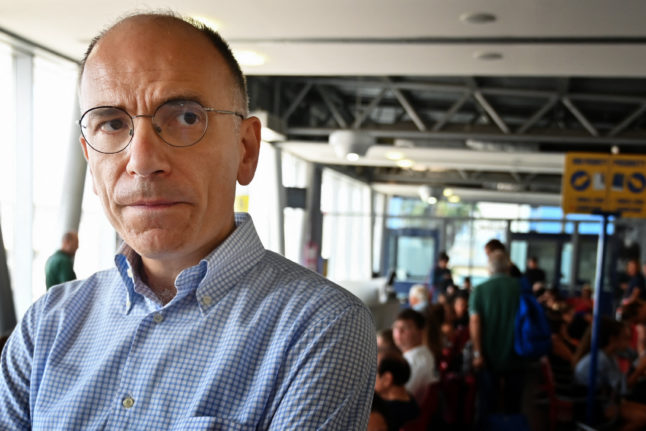
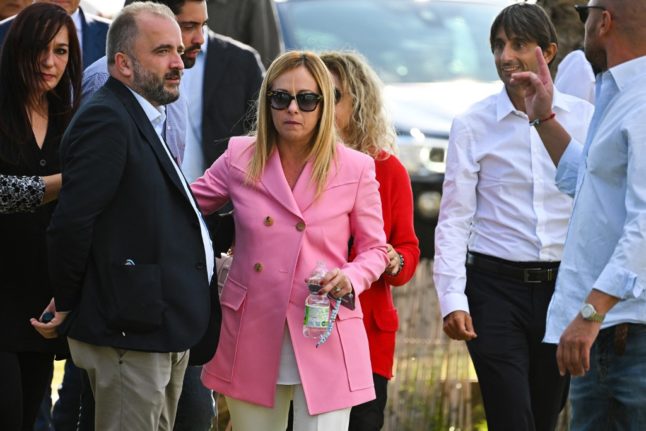
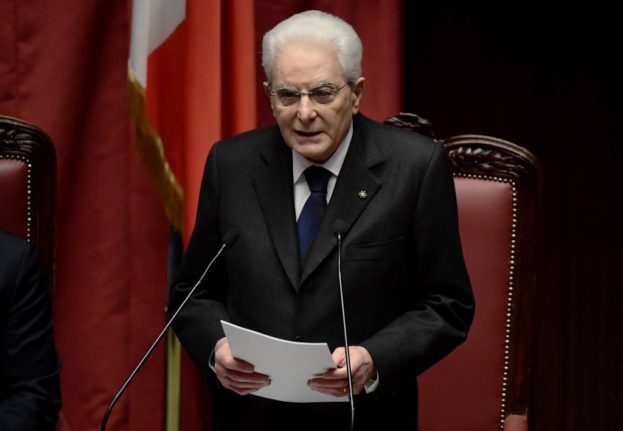
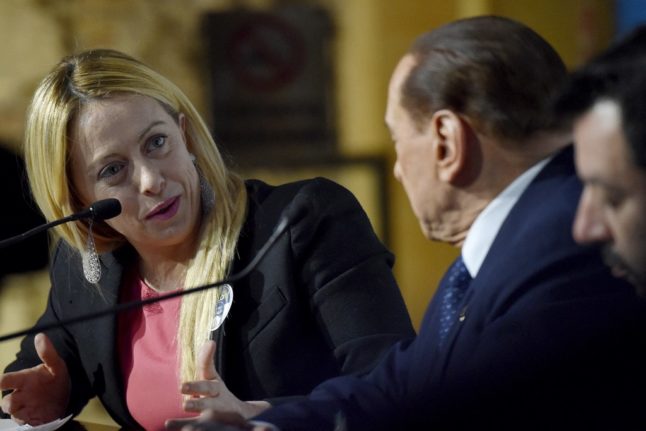
 Please whitelist us to continue reading.
Please whitelist us to continue reading.
Is the problem with the Italian left that none of them are old enough to remember fascism? All the leaders should be locked in a room and forced to watch scary documentaries, until they work out their differences. Otherwise, there may be castor oil in all their futures.